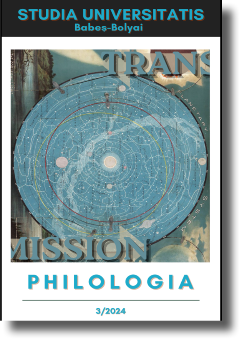LES METAMORPHOSES D’APULEE. 2. DESTRUCTURATION ANARCHÉTYPALE DU ROMAN
APULEIUS’ METAMORPHOSES. 2. ANARCHETYPAL FREEDOM OF THE NOVEL
Author(s): Corin BragaSubject(s): Comparative Study of Literature
Published by: Studia Universitatis Babes-Bolyai
Keywords: Greek and Latin novel; Apuleius; The Metamorphoses; mystery cults; initiation travel; archetype; anarchetype.
Summary/Abstract: Apuleius’ Metamorphoses. 2. Anarchetypal Freedom of the Novel. In this paper I apply a concept I have coined and defined—the anarchetype—to the ancient Greek and Latin novel, more specifically to Apuleius’ Metamorphoses. The text suffers, in my view, from the tension between two contrary formal tendencies, one which is archetypal, another which is anarchetypal. In a paper published in the previous issue of this journal, I have analyzed the first structural constraint, the archetypal one. In the present paper I focus on the anarchetypal tendency of the novel. Apuleius’ assumed intention of writing an entertaining text, in the wake of the “Milesian tales”, offers him the opportunity to treat freely the epic material, with no regards to Aristotle’s principles and to the canon of high literature. The haphazard fragmentation of the linear narrative and the plethora of additional stories give the text the aspect of an anarchetypal rhizome-like domino game.
Journal: Studia Universitatis Babes-Bolyai - Philologia
- Issue Year: 69/2024
- Issue No: 3
- Page Range: 175-188
- Page Count: 14
- Language: French

